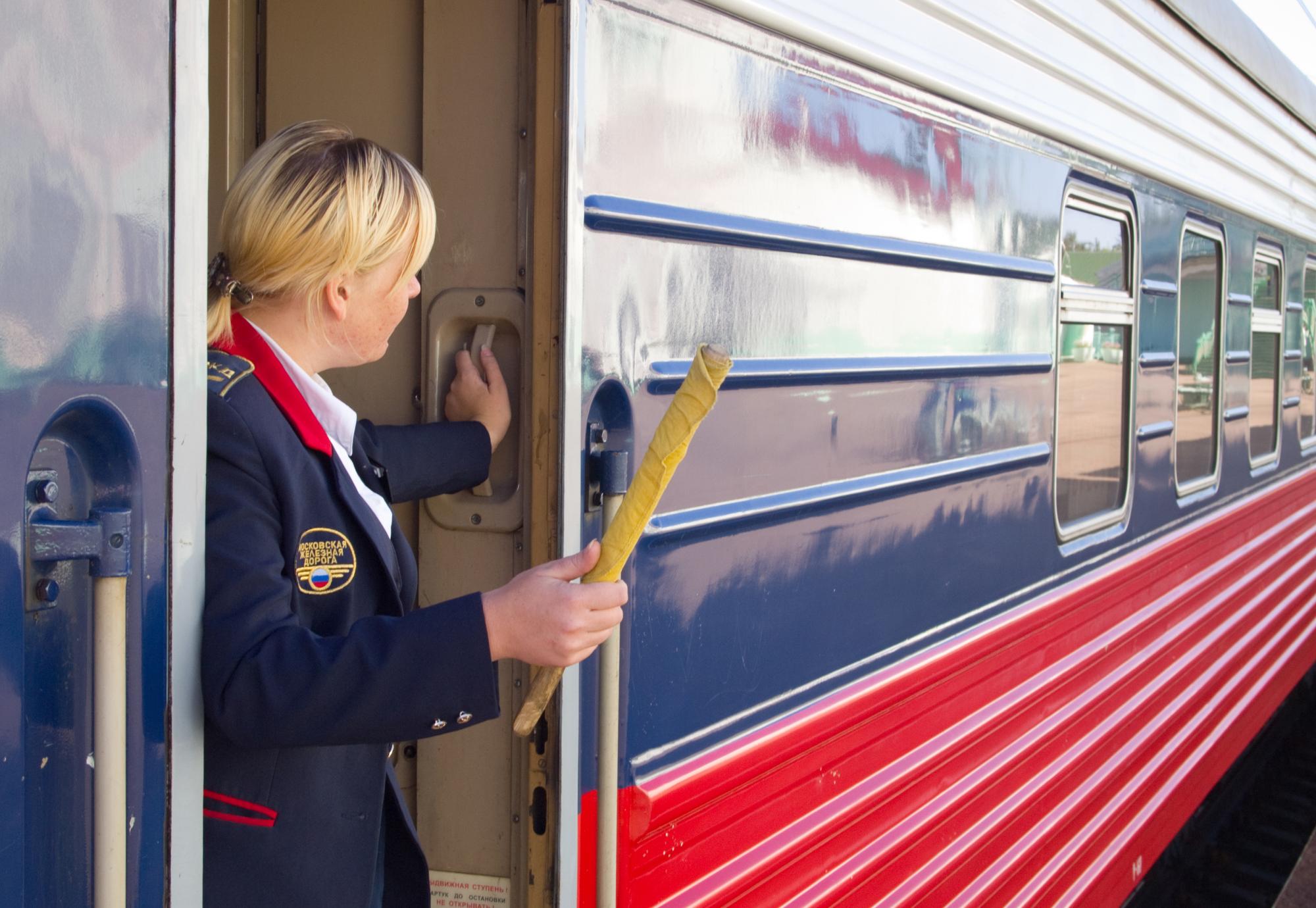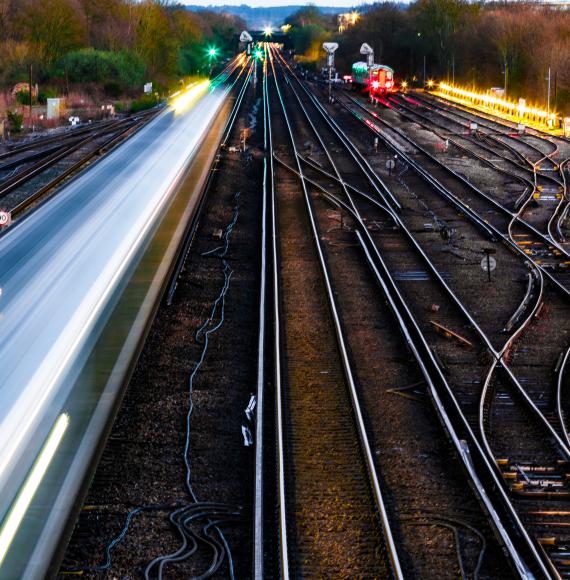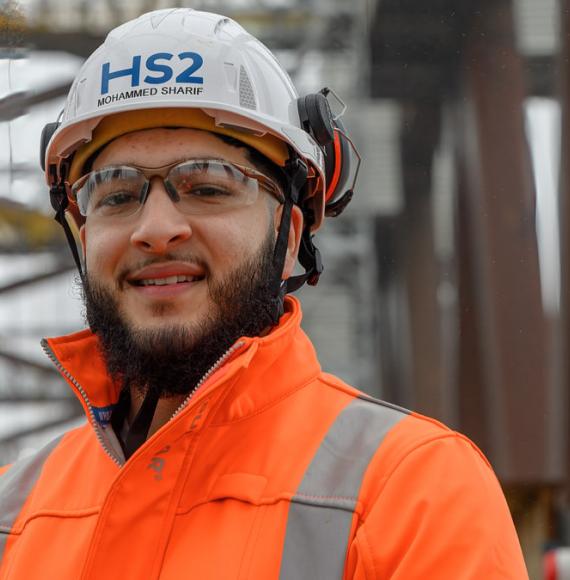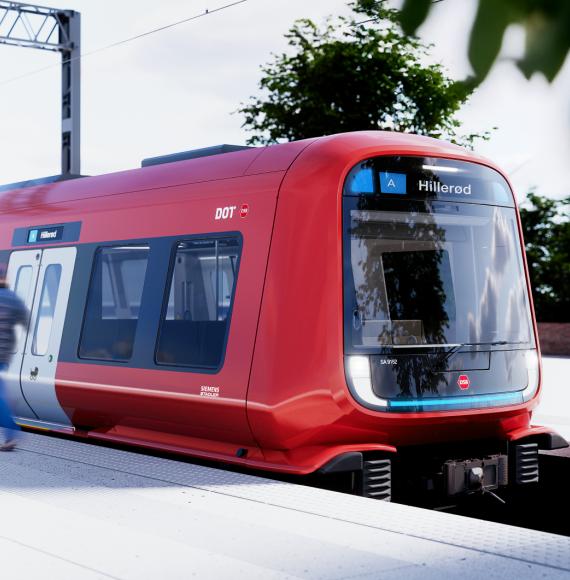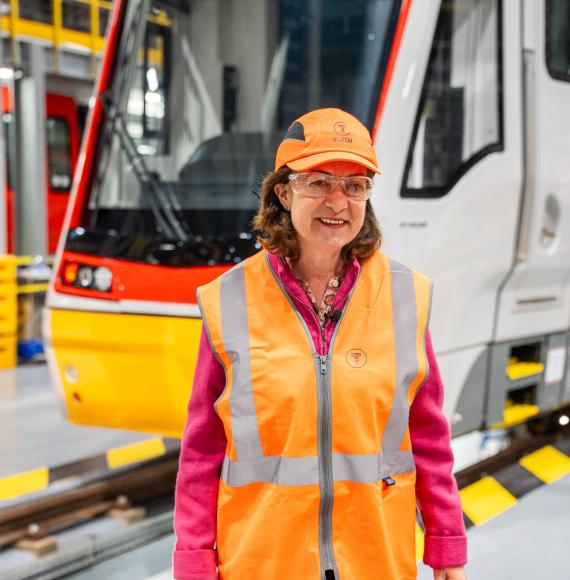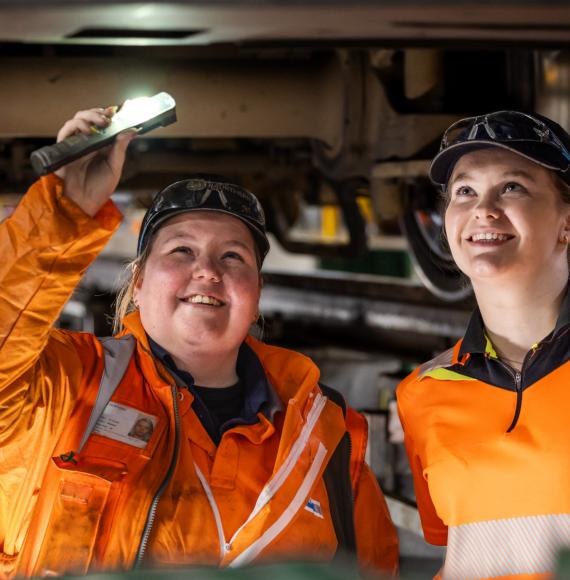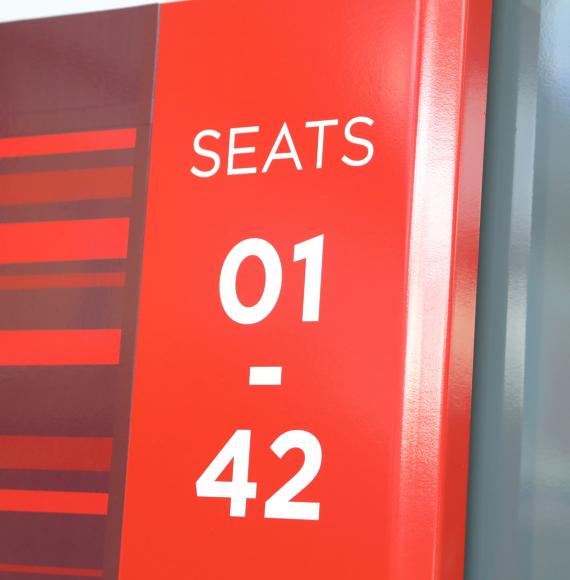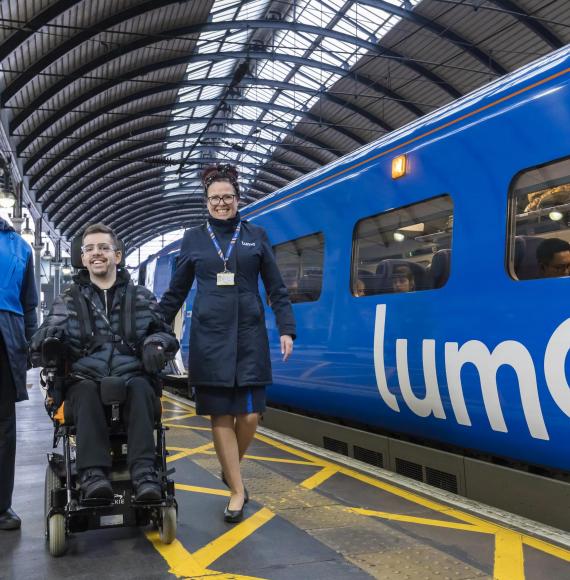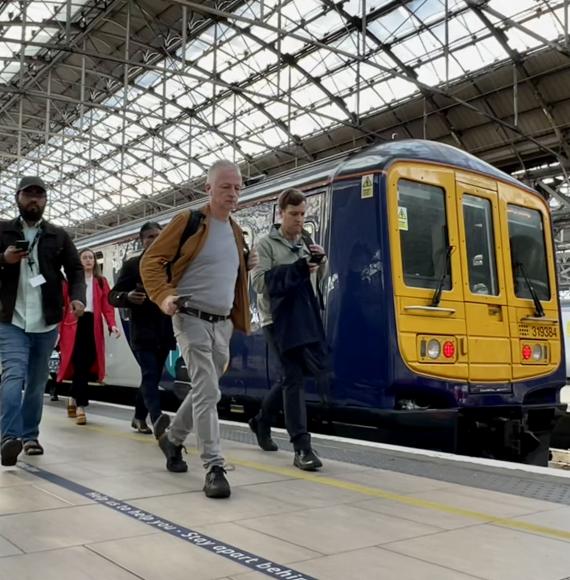In light of last week’s annual celebration of International Women’s day, a day which recognizes the everyday contributions women make and have made in every facet of society and across the globe, we had the honor and pleasure to connect with Adeline Ginn MBE, founder and Chair of Women in Rail and Legal and Marketing Director at CPMS – Egis.
She leads an organisation which has strived, worked and campaigned for nearly a decade in the rail industry for better gender balance, diversity, support and equal opportunities for women of all background, ethnicity, religion and sexual orientation within the sector. We had the opportunity to ask her a range of questions and she shared some her insight, perspective and knowledge on the present conditions of the industry and the EDI work that can and needs to be done to improve them.
Last week, we celebrated International Women’s Day, a day which showcases and recognizes the work, contributions, successes of women across the globe. When it comes to women who work in the rail industry what can women celebrate today?
Women can celebrate the fact that our industry has accepted to self-reflect and to start the hard work towards achieving better gender balance, fairness, diversity and inclusion throughout the sector.
In the last 9 years, rail has become more acutely aware of the skills gap and of the benefits of fostering a more diverse workforce. The business case for both gender diversity and ethnic and cultural diversity is now better understood and stronger than it ever was.
Companies are more open to take action. But to make progress, they need to work together collaboratively and pay much greater attention to inclusion, as well as diversity. They need to take a business-led approach and bold, concerted action, to embed an inclusive culture within their workforce.
They must be ready to tackle sensitive topics around cultural norms, to openly encourage and celebrate differences of opinion and to adopt a zero-tolerance policy to non-inclusive individual behavior, including in the management and leadership teams and, crucially, they need to sustain these efforts over time.
"The Equality, Diversity and Inclusion Charter launched jointly by Women in Rail and the Rail Industry Association back in November last year reflects the commitment of rail companies to do exactly that and it is a great step forward in our industry’s EDI journey"

Adeline Ginn MBE
What are the barriers to EDI (Equality, Diversity & Inclusion) in rail?
There are two main potential barriers to EDI in my view.
The first barrier can be a lack of purposeful follow through on diversity commitment. Some companies have publicly pledged to build a diverse and inclusive workforce culture but have tended to rely overly on employee resource groups to drive their EDI agendas, rather than giving leaders and managers true accountability for strengthening diversity.
“Inclusion is how people behave and leaders must create a safe environment where diversity and vulnerability are embraced, where women and people from minorities and diverse backgrounds do feel fully included and where protected groups are able to take an active part in the company’s growth.”
Substantial progress will be made on the EDI agenda if leaders take pro-active steps to embed an inclusive culture in their company and adopt a positive approach to diversity which is stitched-in at the deepest and highest level of the organisation.
“…at the current rate of progress, it will take 24 years for the average UK company to reach gender parity on its executive team, and 13 years on boards”
This means creating an expectation of exclusion in their workforce and standing by it. This is not easy for most leaders as everyone is prone to bias, conscious and unconscious and acceptance that each of us is biased – and needs to work on this – is the most important steps anyone can take. But, at the current rate of progress, it will take 24 years for the average UK company to reach gender parity on its executive team, and 13 years on boards.
So, the way an organisation is willing to self-reflect and to adopt the systematic, business-led approach that is needed to translate their EDI commitment into actual change will be a sign of how healthy and committed to change it truly is.
Second barrier is a misconception about inclusion: there is often a prevailing belief that “one size fits all”, that “everything should be the same for everyone”, but this fails to factor in the extent to which women and ethnic minorities face bias and microaggressions more than the dominant majority.
Inclusion is how people behave and leaders must create a safe environment where diversity and vulnerability are embraced, where women and people from minorities and diverse backgrounds do feel fully included and where protected groups are able to speak up and take an active part in the company growth.
This will involve unconscious bias training for everyone, regular pulse surveys, upholding a zero-tolerance policy for discriminatory behavior and microaggressions and leadership accountability.
What specific actions can companies take to support the EDI agenda?
The Equality, Diversity and Inclusion Charter reflects the commitment of rail companies to champion equality, diversity and inclusion in our industry and to work together to build a more balanced, fair and high performing sector.
To date, over 150 rail organisations have signed up which sends a strong message to the rail workforce that leaders are committed to working together to build on, and accelerate, the progress made in the last few year to create opportunities for everyone and build an inclusive culture.
I would encourage any company which has not yet signed up to the Charter to do so, whether or not they have an internal EDI plan in place, as the purpose of the Charter is to foster a coordinated approach to EDI in the rail industry, recognising that we all have a collective role to play in making a positive change for the benefit of our sector and its workforce.
“It also involves appointing a member of the senior leadership team, ideally at board level, as an 'EDI Champion' to be at the heart of the gender diversity and inclusion effort and accountable for progress. It also includes developing a credible EDI action plan and creating a culture that fosters inclusion and encourages 'quiet voices.”
The Charter involves signatory companies appointing a member of their senior leadership team, ideally at board level, as an 'EDI Champion' to be at the heart of the gender diversity and inclusion effort and accountable for progress. It also includes developing a credible EDI action plan and creating a culture that fosters inclusion and encourages “quiet voices”.
Companies are also encouraged to take pro-active steps to advance diverse talent into executive, management, technical and board roles, to enable equality of opportunity through fairness and transparency, for instance by deploying analytics tools to build visibility into the extent to which promotions and pay processes and criteria are transparent and fair, to uphold a zero-tolerance policy for discriminatory behaviour such as bullying and harassment and to actively build the ability of managers and staff to identify and address microaggressions.
There is a tremendous amount of good work that has been done by companies already which can be drawn upon to build a culture in which all employees feel they can bring their whole selves to work and create a philosophy of inclusion throughout the organisations.
Could you please tell me a little bit about the origins of Women in Rail and what gave you the impetus to start It?
I set up Women in Rail back in 2012 to give women working in the railway, regardless of ethnicity, background, religion, sexual orientation, access to a comprehensive networking and professional support platform which would not only give them the opportunity to meet other women working in rail - and therefore build or expand their own personal and professional network – but also gain access to programmes offering them help and guidance in their professional development, growth and confidence to help them realize their career potential.
9 years on, we have 5,000 members, men and women of all grades and roles in UK rail. We host a wide range of networking events and workshops through our 8 regional hubs: in Scotland, the North West, Yorkshire, the West Midlands, the East Midlands, Wales, the South and of course London.
“Most amazingly, we are all volunteers - about 100 of us - pushing the Women in Rail agenda forward in addition to our day job. I personally feel very privileged to be working with such a fantastic team of committed and dedicated people, passionate about creating opportunities for all in our industry”
We run a very successful cross-company mentoring programme endorsed by the Department for Transport and the Rail Delivery Group.
We run two yearly flagship events: The Big Rail Diversity Challenge - a day of fun where gender balanced and diverse teams go head-to-head in mental and physical challenges - and the Women in Rail Awards - where we get the opportunity to celebrate people, teams and companies who go the extra mile to push forward the gender balance, equality, diversity and inclusion agenda in UK rail.
Most amazingly, we are all volunteers - about 100 of us - pushing the Women in Rail agenda forward in addition to our day job. I personally feel very privileged to be working with such a fantastic team of committed and dedicated people, passionate about creating opportunities for all in our industry.
Why is it important for rail to attract more women into the workforce?
Women are crucial to the future of our industry. More women mean a more balanced workforce. However, it is not just about attracting women but about welcoming broader diversity in the sector, people of all backgrounds, ethnicity, religious beliefs, sexual orientations, gender identity, abilities, etc so that rail becomes more representative of its customer base, more innovative and, in the current crisis, better equipped to recover quicker.
“You asked me specifically about women: one study found that over a 2-year period, companies with more women were more likely to introduce radical new innovations into the market”
Creating a diverse workforce is crucial if we are to be a fully performing industry. Rail needs to adequately meet and understand the needs of its passengers, be representative of the communities it serves and embrace the diversity of its customer base. And this cannot happen without a gender balanced and diverse workforce.
You asked me specifically about women: one study found that over a 2-year period, companies with more women were more likely to introduce radical new innovations into the market.
Similarly, research have shown that businesses run by culturally diverse leadership teams are more likely to develop new products than those with homogeneous ones and that diverse teams tend to be more innovative, focus more intently on facts and process them more carefully and therefore are stronger at anticipating shifts in customer needs.
And to thrive, that diversity will require an inclusive culture, a culture where everyone is given a sense of belonging, respected, listened to and has its voice heard as part of the decision-making process. The EDI agenda, which involves women and people from all backgrounds, is crucial to the future of rail.
How then to attract female talent?
If companies want to attract women, they can do so by creating an environment that makes them feel welcomed and valued. This starts by fostering a culture of diversity and inclusion that is supportive and making the company’s core business leaders and managers at the heart of the gender diversity and inclusion effort and hold them to account for progress.
“……being open and transparent about pay and ensure any gender pay gap is addressed, and of course, showcasing the female role models into the executive, management, technical and board roles as evidence the company is truly committed to the development and growth of its female workforce”
It also includes implementing internal procedures which makes it easier for women to balance work life and home priorities, such as flexible working, shared parental leave, return to work days after maternity leave, improving the talent pipeline by adopting blind CVs in the recruitment process, giving women access to internal and external mentoring programmes, and have clear, well thought out, personal development plans so the career path and pipeline are visible to them. It also involves being open and transparent about pay and ensure any gender pay gap is addressed, and of course, it includes showcasing the female role models into the executive, management, technical and board roles as evidence the company is truly committed to the development and growth of its female workforce.
What work can the industry expect from Women in Rail as we approach a post-pandemic situation?
We will continue our work, relentlessly and passionately, as we have done for the last 9 years to push the gender balance and EDI agenda forward in UK rail.
In particular, we will pro-actively support the EDI Working Group which we created a month ago in collaboration with RIA to drive of the equality, diversity and inclusion agenda within the UK rail industry, in line with the core principles set out in the EDI Charter.
Each member of the Working Group has been chosen on the basis of their personal commitment and qualities and the fact that they represent a spectrum of the backgrounds, ages, genders, abilities and identities and various grades, roles and companies within the UK rail industry at this particular point in time.
They are all amazing and passionate about helping drive the changes our industry needs to be truly diverse and inclusive.
“The UK rail industry is one of the best in the world, but the diversity of the pipeline of future leaders must be improved”
The role of the EDI Working Group will be to liaise with the EDI Champions to encourage collaboration between signatory companies and more broadly the sharing of best practice and success stories. It will circulate information, news and details of resources and initiatives (for instance, through quarterly Newsletters, posts, blogs, opinion pieces, events) which are relevant to the progression of the equality, diversity and inclusion agenda in UK rail and thus help use the EDI Charter to build the railway for the future.
We will also continue our work on SWiFT to open the pipeline for broader diversity in the boardroom.
SWiFT, which stands for Senior Women in (or Formerly) In rail and/or Transport, brings senior male and female executives of the rail industry together to create a platform to support the career progression of high potential people in the railway and, in time, help improve gender diversity at senior and excusive level in the sector, with a particular focus on women of diverse background.
The UK rail industry is one of the best in the world, but the diversity of the pipeline of future leaders must be improved. SWiFT is about helping create more diversity of thought at executive level in our sector and increasing the leadership capabilities of our industry now and in the future.

